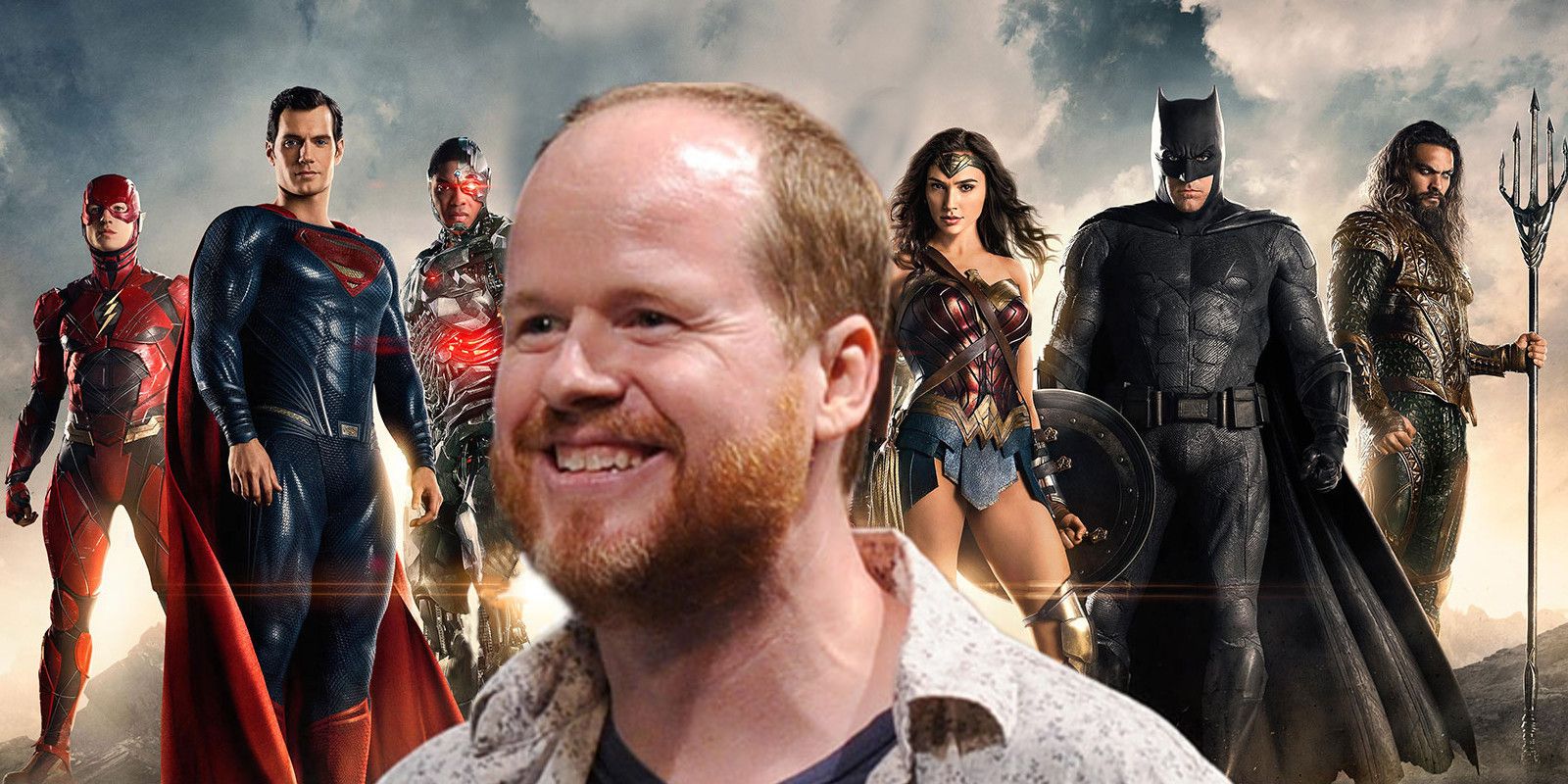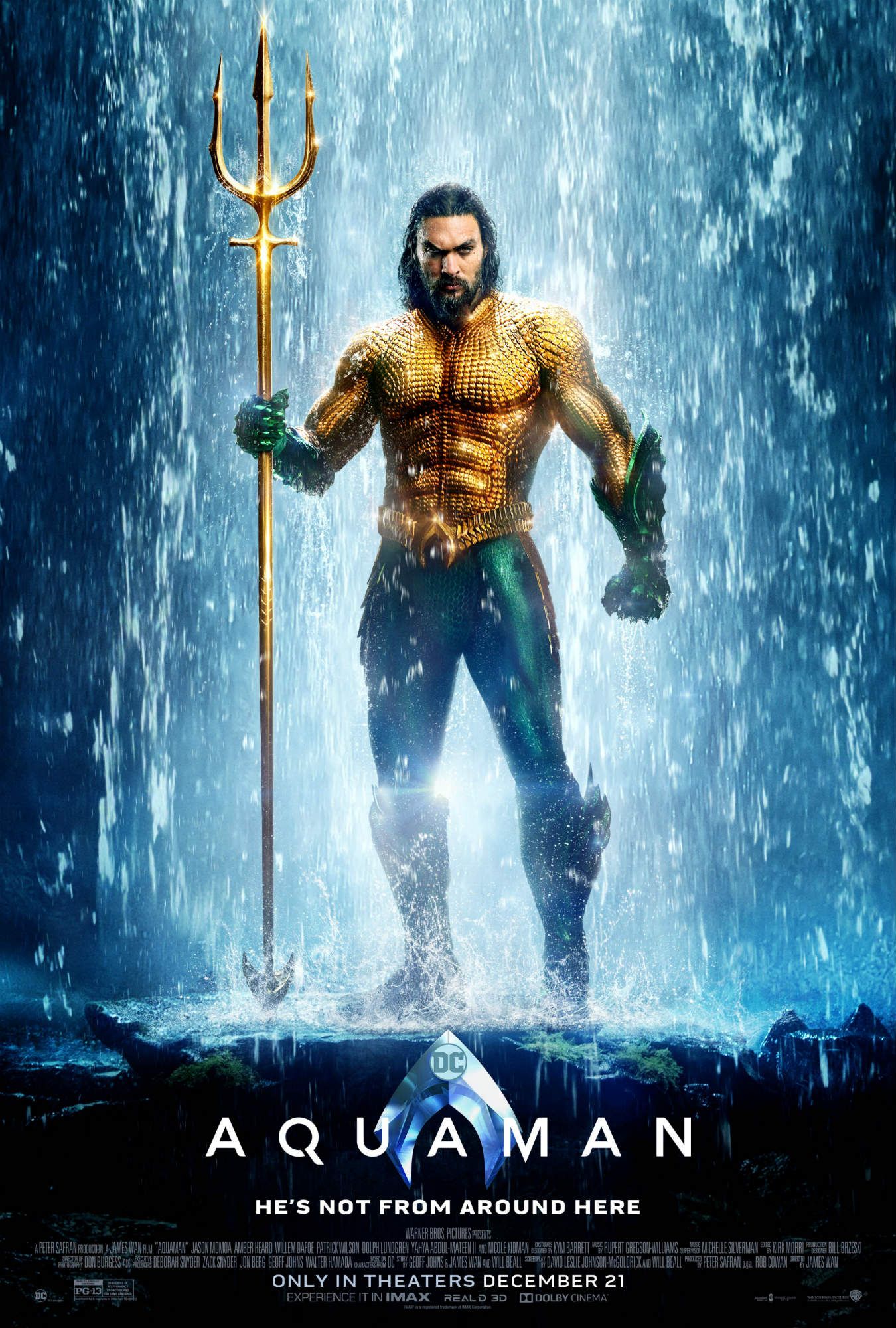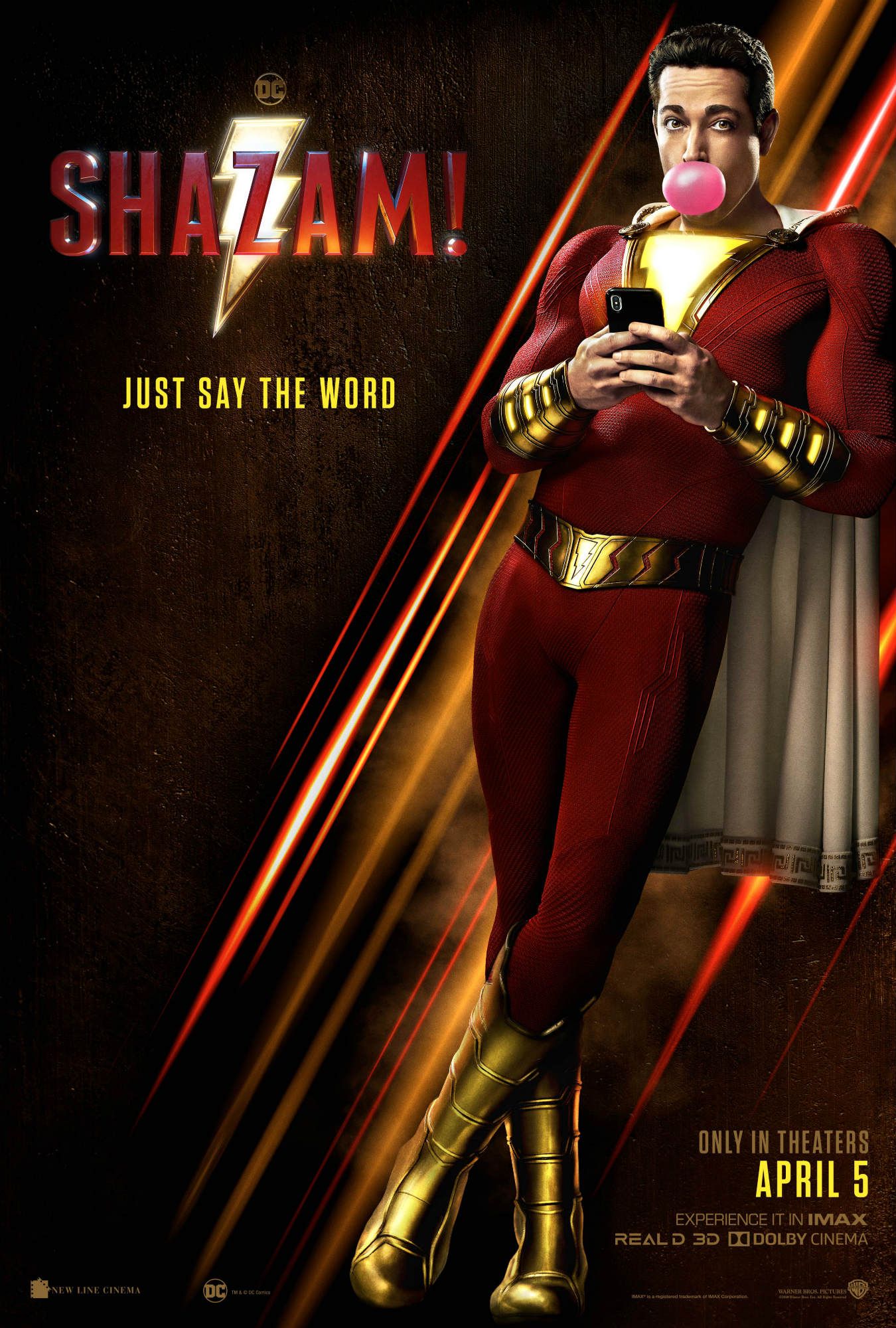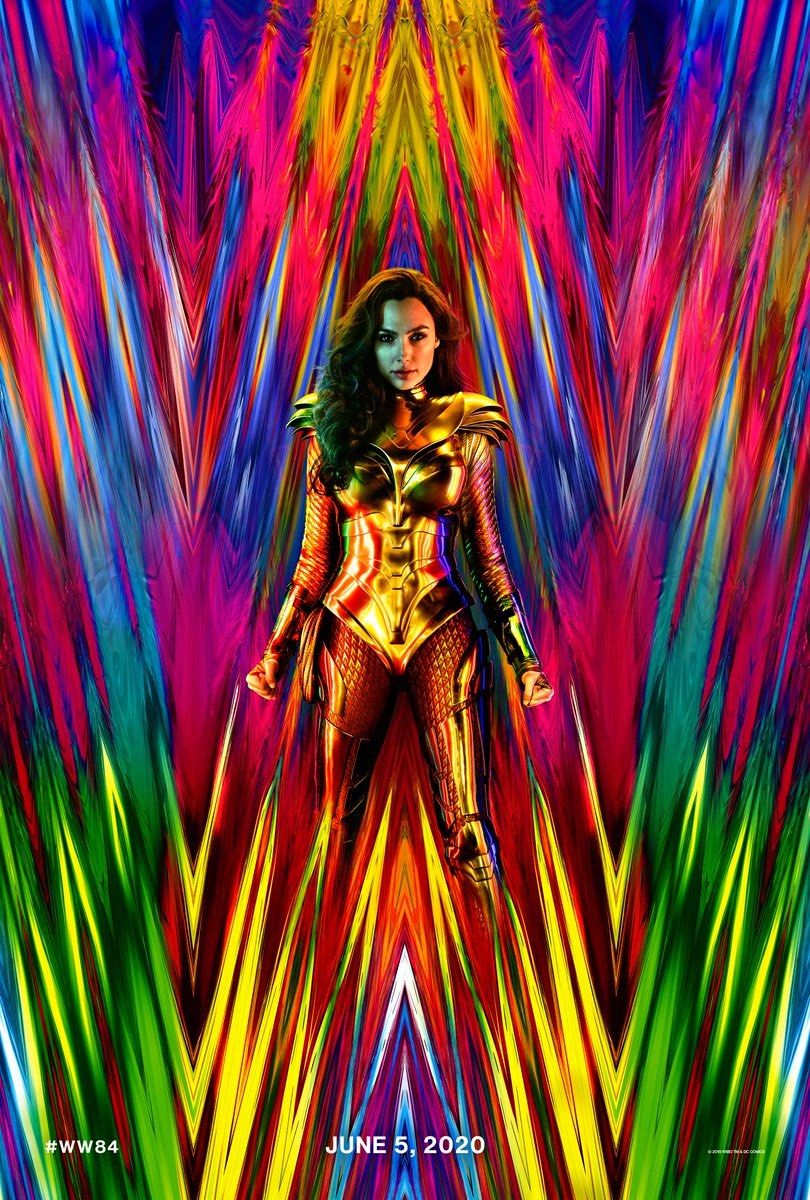At this point, there's really no getting around the cold hard truth: Justice League is an outright failure of the DC Extended Universe. While it's garnered slightly better critical reviews than the likes of Batman v Superman: Dawn of Justice and Suicide Squad, it's coming up considerably short where it counts for Warner Bros., with box office returns lagging well behind all the other DCEU releases. That DC's version of the superhero team-up has yet to match the opening weekend of Marvel's The Avengers after three weeks in cinemas has thrown the future of DC's film slate into question, and people are understandably beginning to point fingers at those who they feel are to blame for whiffing on such seemingly sure thing. The most ardent fans of the DCEU have come to something of a consensus regarding who Justice League's failure should largely be attributed to: Joss Whedon.Joss Whedon Did His Best To "Save" Justice League (This Page)The argument against Whedon is both straightforward and weirdly complicated. On a surface level, the hate being leveled Whedon's way makes a certain amount of sense; after Zack Snyder departed the film's production in the wake of his daughter's death, Whedon took over as director for the film's reshoots and post-production process. While that was initially sold as Whedon stepping in simply to oversee completion of Snyder's vision, we've since learned that was not the whole story.Related: Justice League Reshoots: Every Change Whedon Made To Snyder's FilmWarner Bros. was unhappy with the direction the film was taking well before Snyder left the production, reportedly calling an early cut of the film "unwatchable." Whedon was brought in to work with Snyder on suring up the script, and was the natural choice to take over when Snyder could no longer participate. But rather than completing Snyder's vision, Warner Bros. had Whedon drastically alter both the tone and story of the film through reshoots that were much more extensive than was originally made clear. This, understandably, led to a film with a schizophrenic tone, a Frankenstein movie attempting to bridge the decidedly different styles of the two filmmakers.The reshoots are pretty easy to spot, as several of the actors look noticeably different, sometimes within the same scene. Most infamously, the shoddy CGI erasure of Henry Cavill's Mission: Impossible mustache sticks out like...well, like a weird CGI upper lip, making every Superman reshoot readily apparent. Coupled with the fact that Whedon is simply not the visual artist that Snyder is made it very easy to see the movie's unfortunate seams. One of the chief arguments against Whedon is that he should have made subtler changes to the film and maintained as much of what Snyder had intended as was possible to create a film that was thematically and visually coherent.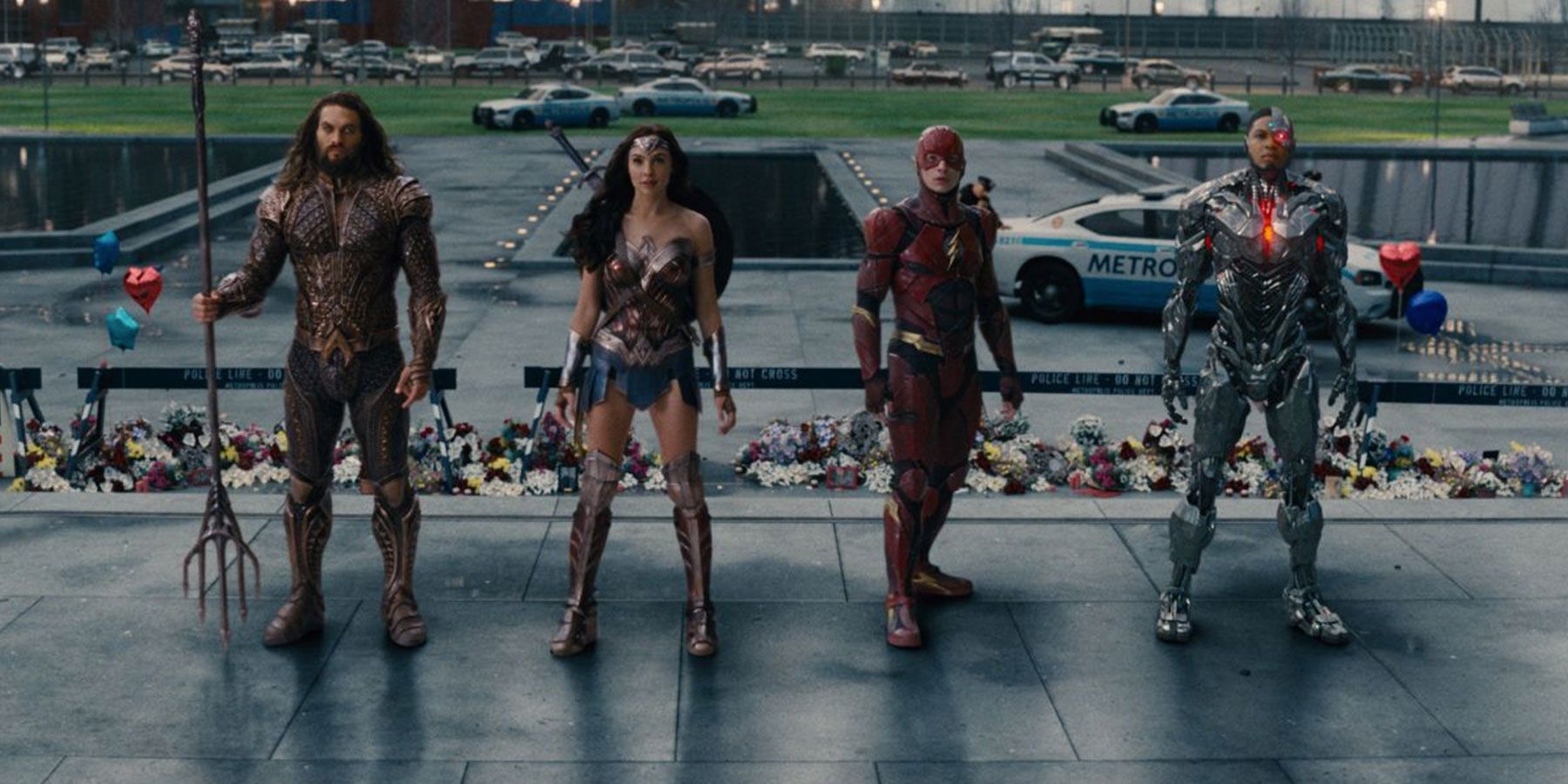 The problem with that argument is pretty simple: that's clearly not what Warner Bros. hired Whedon to do. Reports have recently surfaced claiming the studio considered firing Snyder after the polarizing reception that accompanied Batman v Superman, realizing their DC superhero slate was in need of a course correction. The first signs of that adjustment were apparent in this summer's Wonder Woman. Directed by Patty Jenkins - who worked closely with newly installed DC Films head Geoff Johns - that film was a triumph, striking a warm, earnest tone that seemed very far away from Snyder's dark, violent interpretation of the DC Universe, and yet just as far away from the winking, snarky antics of Marvel's films. Both a critical and financial smash, Wonder Woman pointed the way forward for the DCEU.But through Warner Bros.'s own poor planning, the wheels were already turning on Justice League, which was still being conceived of by Snyder and his collaborators. Rather than delay a film they had next to no confidence in, they went into the process creatively compromised, pushing a tone and sensibility on Snyder that simply never fit him. When tragedy struck and Snyder departed, Warner Bros. saw an opportunity to further alter the film, hoping to salvage what they likely knew was a picture out of step with where they were heading. Whedon was essentially handed an impossible task: radically rework a visual effects intensive blockbuster that he didn't initially conceive of in a few short months.Read More: Is Justice League Worse Than Batman v Superman?It would have been a nearly impossible task for anyone, and the fact that Justice League makes a lick of sense at all is a testament to Whedon's talent.
The problem with that argument is pretty simple: that's clearly not what Warner Bros. hired Whedon to do. Reports have recently surfaced claiming the studio considered firing Snyder after the polarizing reception that accompanied Batman v Superman, realizing their DC superhero slate was in need of a course correction. The first signs of that adjustment were apparent in this summer's Wonder Woman. Directed by Patty Jenkins - who worked closely with newly installed DC Films head Geoff Johns - that film was a triumph, striking a warm, earnest tone that seemed very far away from Snyder's dark, violent interpretation of the DC Universe, and yet just as far away from the winking, snarky antics of Marvel's films. Both a critical and financial smash, Wonder Woman pointed the way forward for the DCEU.But through Warner Bros.'s own poor planning, the wheels were already turning on Justice League, which was still being conceived of by Snyder and his collaborators. Rather than delay a film they had next to no confidence in, they went into the process creatively compromised, pushing a tone and sensibility on Snyder that simply never fit him. When tragedy struck and Snyder departed, Warner Bros. saw an opportunity to further alter the film, hoping to salvage what they likely knew was a picture out of step with where they were heading. Whedon was essentially handed an impossible task: radically rework a visual effects intensive blockbuster that he didn't initially conceive of in a few short months.Read More: Is Justice League Worse Than Batman v Superman?It would have been a nearly impossible task for anyone, and the fact that Justice League makes a lick of sense at all is a testament to Whedon's talent.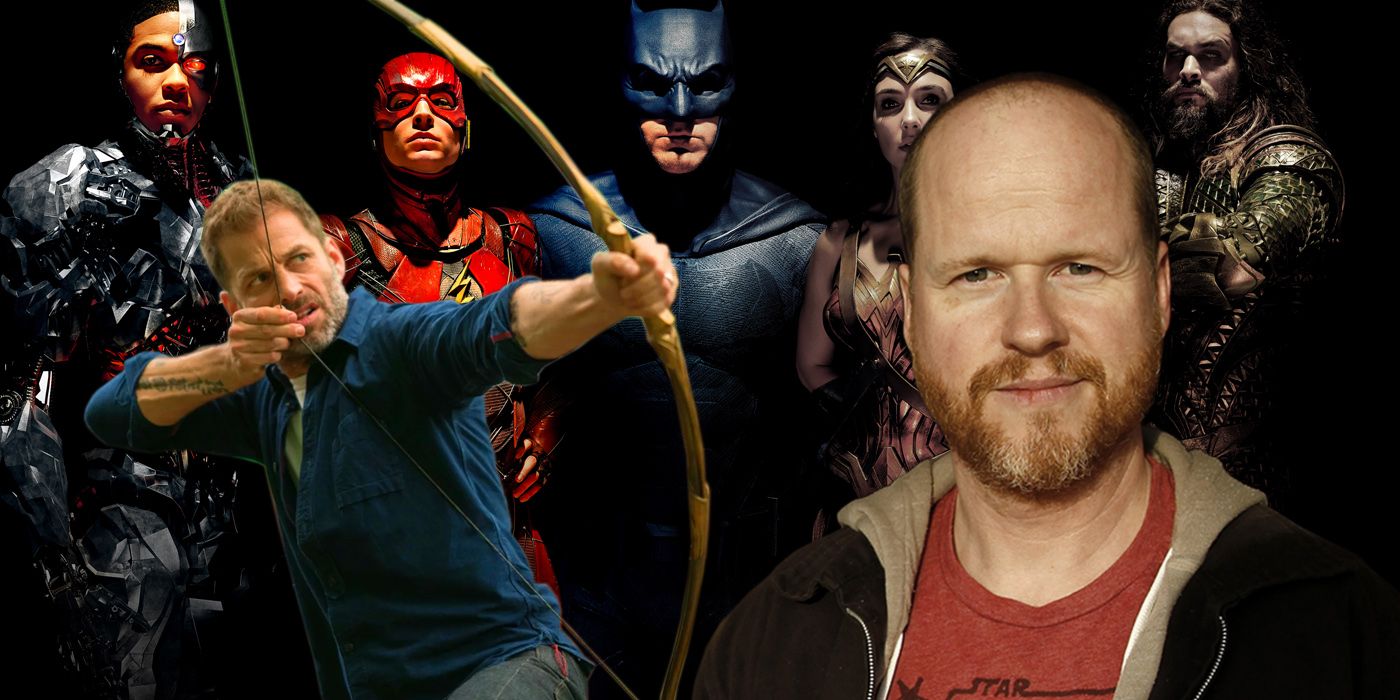 This gets to the darker, ickier aspect of the criticisms being leveled at Whedon: if the movie is almost certainly more his than Snyder's, why has he been almost completely silent about his involvement? There's a really obvious answer to this that fans seem to be completely incapable of grasping, for whatever reason; given the circumstances that led to his assuming directorial duties, Whedon likely feels it's not his place to discuss the film. By all accounts, Whedon was brought onto the production by Snyder himself once it was apparent there were issues with the script. Whedon and Snyder are friends and have been complimentary of each other's work in the past. Whedon is also one of the most prolific script doctors in Hollywood going back to his earliest days in show business; the writers of the Keanu Reeves/Sandra Bullock thriller Speed have famously said the vast majority of that film's dialogue belongs to Whedon, who is uncredited. Quietly coming in to work on Justice League's problems was likely something Whedon had no real qualms doing. Assuming directorial duties was likely another matter entirely, and taking on promotional duties as well as simply a bridge too far.It's easy to imagine Whedon having to uncomfortably field endless questions about how much he meddled with his grieving friend's work, or having to answer for the shortcomings of a film almost everyone involved knew wasn't going to be a masterpiece. It seems perfectly reasonable that Whedon would opt out of such futile exercises, for both his own comfort and out of respect for Snyder.Related: Zack Snyder Hasn't Seen Justice League
This gets to the darker, ickier aspect of the criticisms being leveled at Whedon: if the movie is almost certainly more his than Snyder's, why has he been almost completely silent about his involvement? There's a really obvious answer to this that fans seem to be completely incapable of grasping, for whatever reason; given the circumstances that led to his assuming directorial duties, Whedon likely feels it's not his place to discuss the film. By all accounts, Whedon was brought onto the production by Snyder himself once it was apparent there were issues with the script. Whedon and Snyder are friends and have been complimentary of each other's work in the past. Whedon is also one of the most prolific script doctors in Hollywood going back to his earliest days in show business; the writers of the Keanu Reeves/Sandra Bullock thriller Speed have famously said the vast majority of that film's dialogue belongs to Whedon, who is uncredited. Quietly coming in to work on Justice League's problems was likely something Whedon had no real qualms doing. Assuming directorial duties was likely another matter entirely, and taking on promotional duties as well as simply a bridge too far.It's easy to imagine Whedon having to uncomfortably field endless questions about how much he meddled with his grieving friend's work, or having to answer for the shortcomings of a film almost everyone involved knew wasn't going to be a masterpiece. It seems perfectly reasonable that Whedon would opt out of such futile exercises, for both his own comfort and out of respect for Snyder.Related: Zack Snyder Hasn't Seen Justice League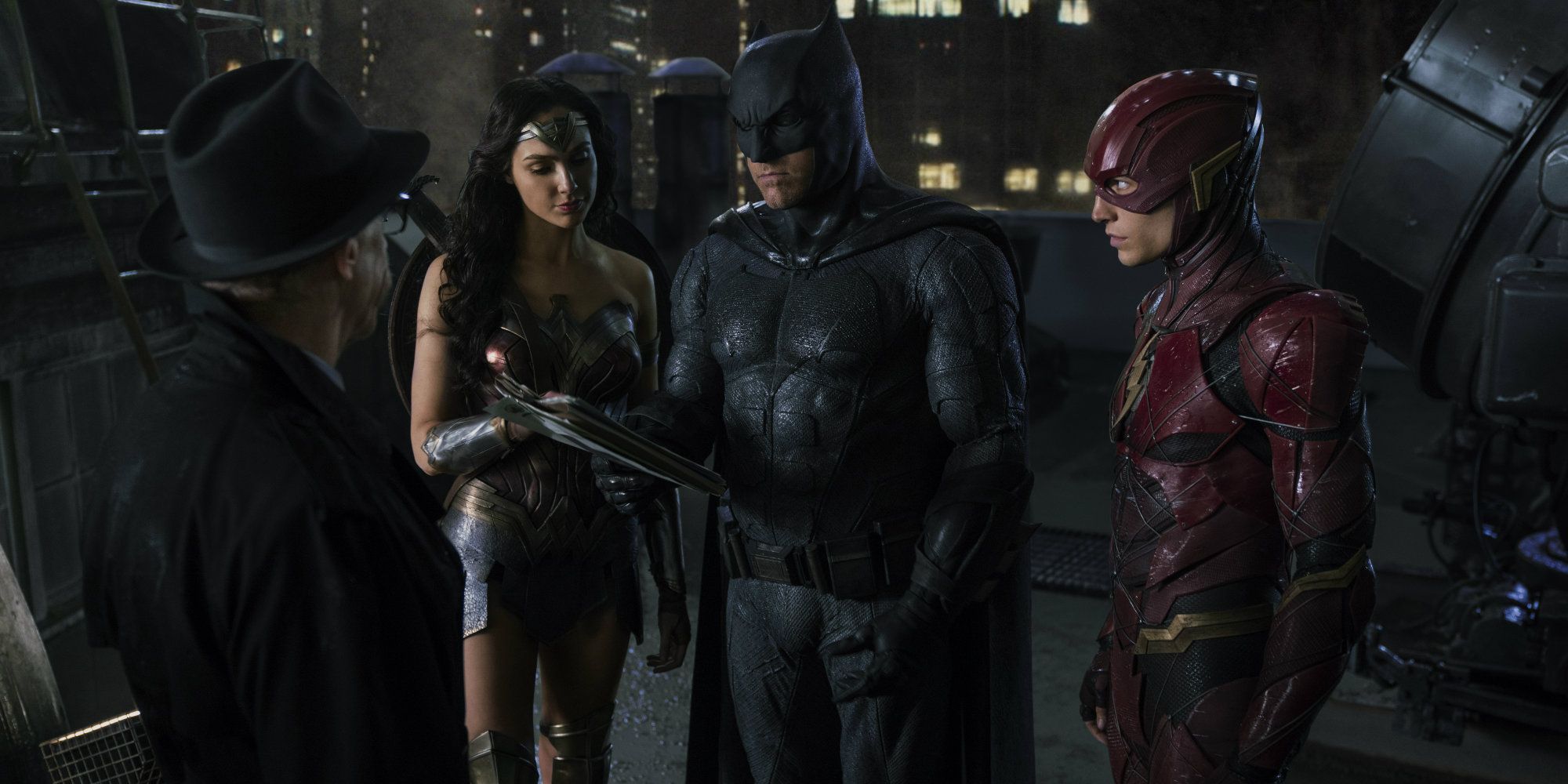 That a large swath of DCEU fans have so acutely directed their fury at Whedon also speaks to another hard truth: this is almost certainly the end of the line for the collaboration between Zack Snyder and DC, and it's likely going to be remembered by the public at large as a failure. And while that sentiment is shared by a majority of casual moviegoers, for many fans, Snyder has done something thrilling and creatively daring with his DC films, taking big risks with these iconic characters by presenting them in ways they largely never had been before. For those fans, DC's new direction is not necessarily a positive thing, and having Snyder's final DC film so fundamentally altered by Marvel's most high profile director feels like a slap in the face.There were no good answers with Justice League. Its fate was likely sealed the moment Warner Bros. decided not to delay its production after Batman v Superman's polarizing reception. It's incredibly doubtful that Zack Snyder was prepping some cinematic masterpiece that we've been collectively robbed of. Snyder and Warner Bros. were going in opposite directions even before tragedy struck. Damning Joss Whedon for taking on an impossible task while his friend grieved an unimaginable loss is the dark side of fandom, putting more value into the entertainment so many use to define themselves than on basic human empathy.It's not like Warner Bros. is scrapping their shared superhero universe. Aquaman is coming in late 2018, Shazam! seems fairly close to the start of production, and a Wonder Woman sequel is the surest of sure things. Justice League is ultimately a speed bump, a product of Warner Bros.'s hubris and shortsightedness. It's perfectly reasonable to blame the studio for bungling what should have been their biggest DC film ever, and to hold their feet to the fire until they can consistently churn out winners like Wonder Woman. But it's time to stop blaming Joss Whedon.More: The First Justice League Movie Could Have Been A Lot Worse
That a large swath of DCEU fans have so acutely directed their fury at Whedon also speaks to another hard truth: this is almost certainly the end of the line for the collaboration between Zack Snyder and DC, and it's likely going to be remembered by the public at large as a failure. And while that sentiment is shared by a majority of casual moviegoers, for many fans, Snyder has done something thrilling and creatively daring with his DC films, taking big risks with these iconic characters by presenting them in ways they largely never had been before. For those fans, DC's new direction is not necessarily a positive thing, and having Snyder's final DC film so fundamentally altered by Marvel's most high profile director feels like a slap in the face.There were no good answers with Justice League. Its fate was likely sealed the moment Warner Bros. decided not to delay its production after Batman v Superman's polarizing reception. It's incredibly doubtful that Zack Snyder was prepping some cinematic masterpiece that we've been collectively robbed of. Snyder and Warner Bros. were going in opposite directions even before tragedy struck. Damning Joss Whedon for taking on an impossible task while his friend grieved an unimaginable loss is the dark side of fandom, putting more value into the entertainment so many use to define themselves than on basic human empathy.It's not like Warner Bros. is scrapping their shared superhero universe. Aquaman is coming in late 2018, Shazam! seems fairly close to the start of production, and a Wonder Woman sequel is the surest of sure things. Justice League is ultimately a speed bump, a product of Warner Bros.'s hubris and shortsightedness. It's perfectly reasonable to blame the studio for bungling what should have been their biggest DC film ever, and to hold their feet to the fire until they can consistently churn out winners like Wonder Woman. But it's time to stop blaming Joss Whedon.More: The First Justice League Movie Could Have Been A Lot Worse

